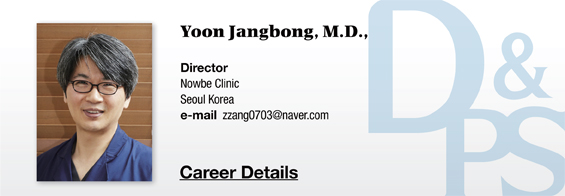
In the previous article, we looked at the benefits of lipase inhibitors. I concluded that the Korean diet is increasingly becoming heavier and Koreans are more frequently eating Western style meals. Especially the younger generation prefer high-fat, high-calorie foods such as brunches, and desserts. This is why lipase inhibitors need to be considered as an important choice in anti-obesity therapy. Here is a recap of major benefits of lipase inhibitors:
First, lipase inhibitors are very safe and have been in use around the world for almost two decades without reports of serious side effects.
Second, they are approved for use in pediatric population aged 12 and older.
Third, regardless of the degree of weight loss, lipase inhibitors brought clear improvement of type 2 diabetes, impaired glucose tolerance, hyperlipidemia, and cardiovascular disorders with little interaction with other medications.
Fourth, the degree and speed of weight loss are not too dependent on the amount of caloric reduction.
In this article, we will take a look at the ephedrine and caffeine combination, one of the longest used anti-obesity drug in the world. Some patients know it as a fat-dissolving drug but clarification is needed as this drug does not directly dissolve fat.
[Advertisement] PICOCARE - Manufacturer: WONTECH(www.wtlaser.com)
History of single-pill ephedrine and caffeine combination
As I have discussed in the previous article on the history of anti-obesity drugs, ephedra alkaloids is derived from the plant Ephedra sinica Stapf. and has been in use since the Middle Ages to relieve symptoms of various respiratory conditions. It is used in the forms of foods (ephedra alkaloids) and drug (ephedrine). In the US, ephedra alkaloids is known as “ephedra” and has long been in use in weight loss supplements until 2004 when FDA banned the use of ephedra alkaloids in food products.
According to research, the drug form of ephedrine causes greater weight loss than the food form. Weight loss is the greatest when it is used in combination with caffeine, a methylxantine, which is why the combination of the two substances is commonly used as an anti-obesity drug.
In the 1970s in Europe, it was found that patients with asthma who were given ephedrine+caffeine (E+C) combination experienced weight loss. This attracted a lot of attention from the society and the field of medicine. In Europe, the so-called “Do-Do pill,” which added theophylline and phenobarbital to the E+C formulation, became widely popular but was subsequently withdrawn from the market due to various side effects including skin irritation and hypertensive effect.
It is important to remember that none of the E+C formulations available in Korea are approved for on-label use in obesity. Most are approved for treatment or symptom relief of upper respiratory infection. All uses of the drug for weight loss are strictly off-label. Therefore, one should remember that the responsibility of prescribing the drug primarily lies with the doctor.
Ephedrine promotes peripheral heat generation by stimulating norepinephrine, a neurotransmitter, at sympathetic nerve terminals or by acting as a neurotransmitter on post-synaptic sympathetic neurons. Caffeine increases metabolism by inhibiting phosphodiesterase which inhibits post-synaptic neuron’s heat generation.
-To be continued-













.jpg)






